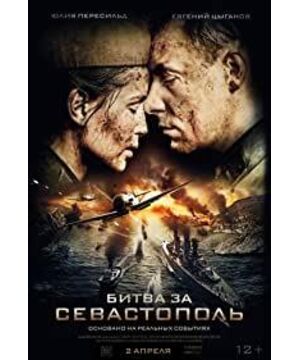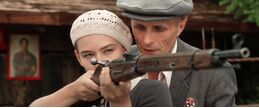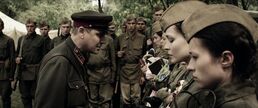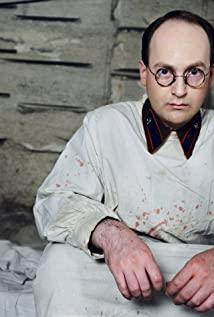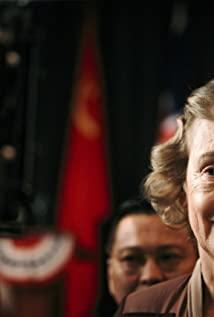In the first stage, the war is seen as a game of gaining honor and a sense of accomplishment, and the corresponding man is the pilot. The man who appeared from the telescope Li on the beach was actually attracted to the heroine. The taste that exudes heroism is consistent with the ideals of great communism in the Soviet Union. In fact, she has no obligation to go to the battlefield, but the times are stirring her. I think this is also a person living in a peaceful environment, the initial fantasy of war. But it should also be noted that the heroine has never fallen in love with a pilot, and I can always feel every kind of political irony in it.
In the second stage, the war becomes revenge, and the counterpart is the first captain. With the death of the captain, we can see that the attitude of the heroine has completely changed. She no longer pursues one bomb and three kills, and does not play heroism in detouring behind the enemy, but seeks to kill the enemy to the greatest extent. This kind of hatred is the emotion that erupts most easily after entering the stage of war stalemate. For those who survive on the battlefield, it does not matter what the purpose of the war is, and the result is not important. It is just because of hatred that kills. This is the cruelest aspect of war, and there is no humanity.
In the third stage, the war was to protect what he valued, and the counterpart was the second captain. Following the shooting of the wiring soldier, the captain saw the hatred in her heart, "War not only includes death, it also includes survival. If you don't know what it is, it will kill you." People in the war rarely live to this stage, because many people are killed by the war without knowing what the war is. It can also be seen that in the whole movie, the only way to see the heroine smiling happily is in this part, the most cheerful rhythm. At the same time, at that wedding, the male lead did not live a happy life with the female lead. There is a collision between the sensibility of a woman and the rationality of a man, and promises in war are the most painful.
In the fourth stage, when the war goes to nothingness, the doctor is the counterpart. In fact, from the very beginning of the doctor's appearance, he has already told this truth. The doctor is not a coward, nor is he lack of courage, nor is he evading war. As a pure intellectual, he knows what war means, what needs to be experienced, and where he will eventually go. He knew from the beginning that war was nihilistic and meaningless. He just wants to be a doctor, treating illnesses and saving people. When the hostess saw the ferry ticket, she realized this. Under the constant kidnapping of the political commissar in the United States, we have seen the heroine resist most weakly.
War can bring honor and heroes, but only a society that pursues knowledge can give this country a future. Sometimes I feel that many people around me who are not afraid of big things have basically died in the second stage. I will treat this as an anti-war film.
View more about Battle for Sevastopol reviews


